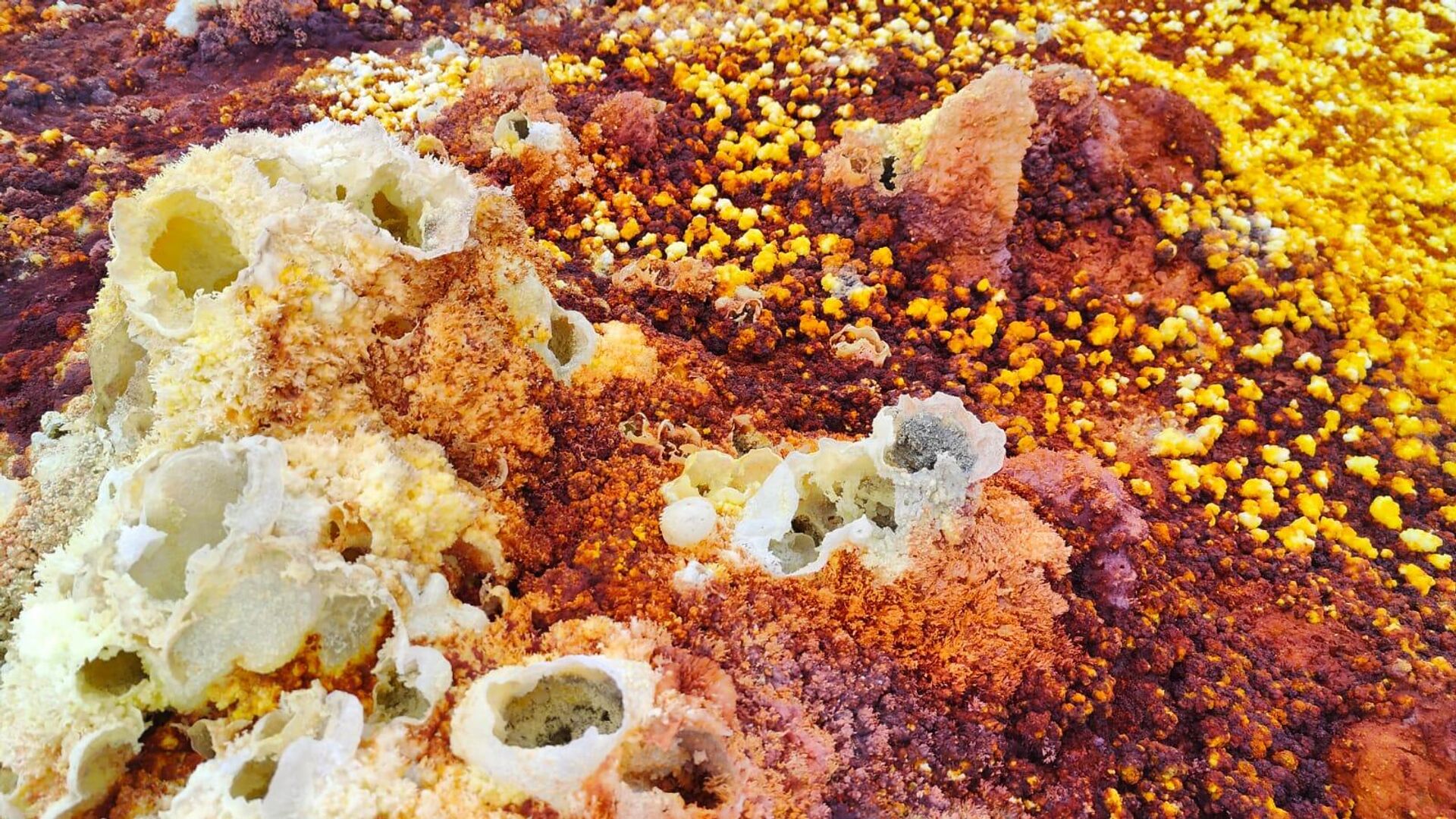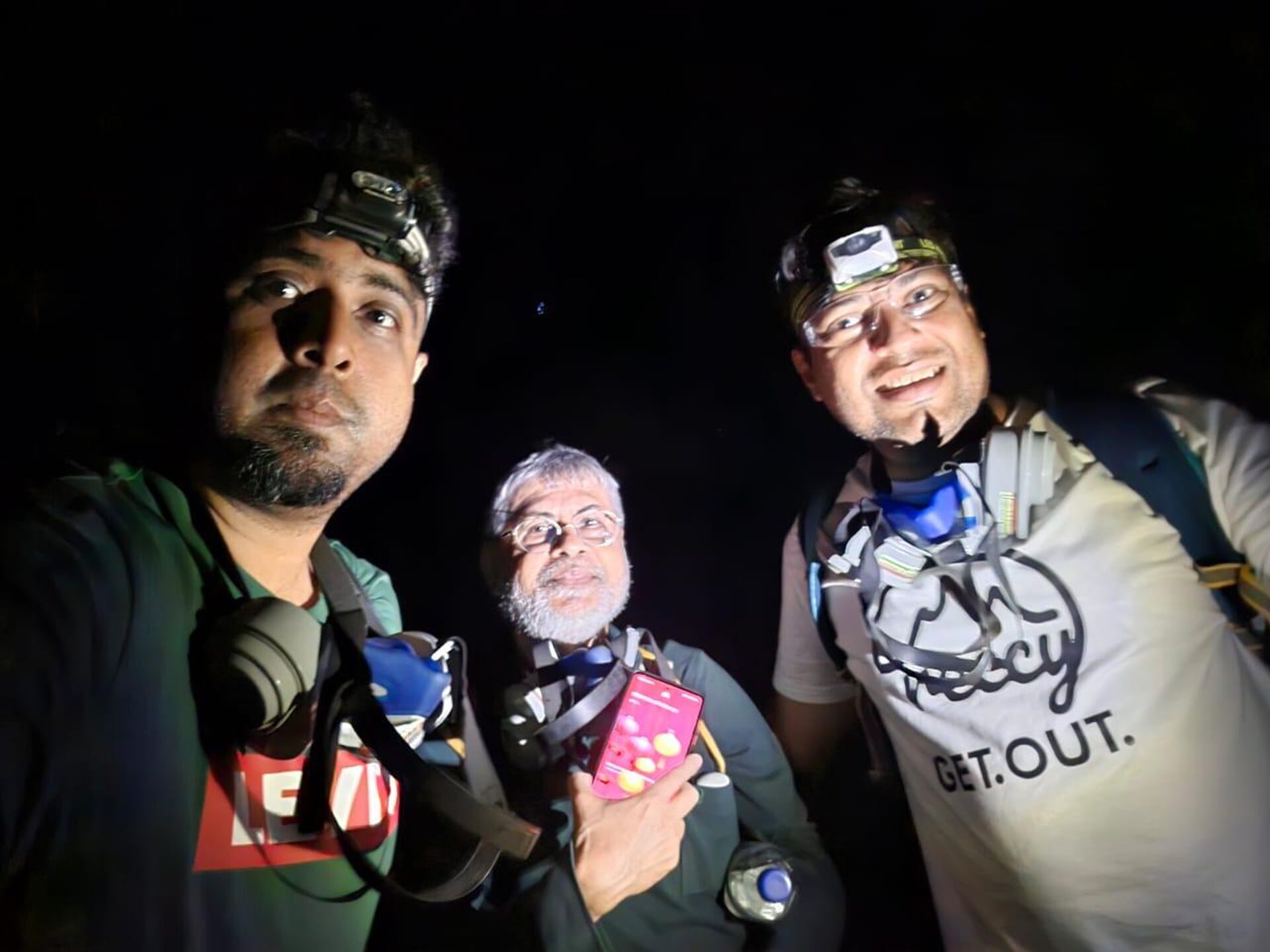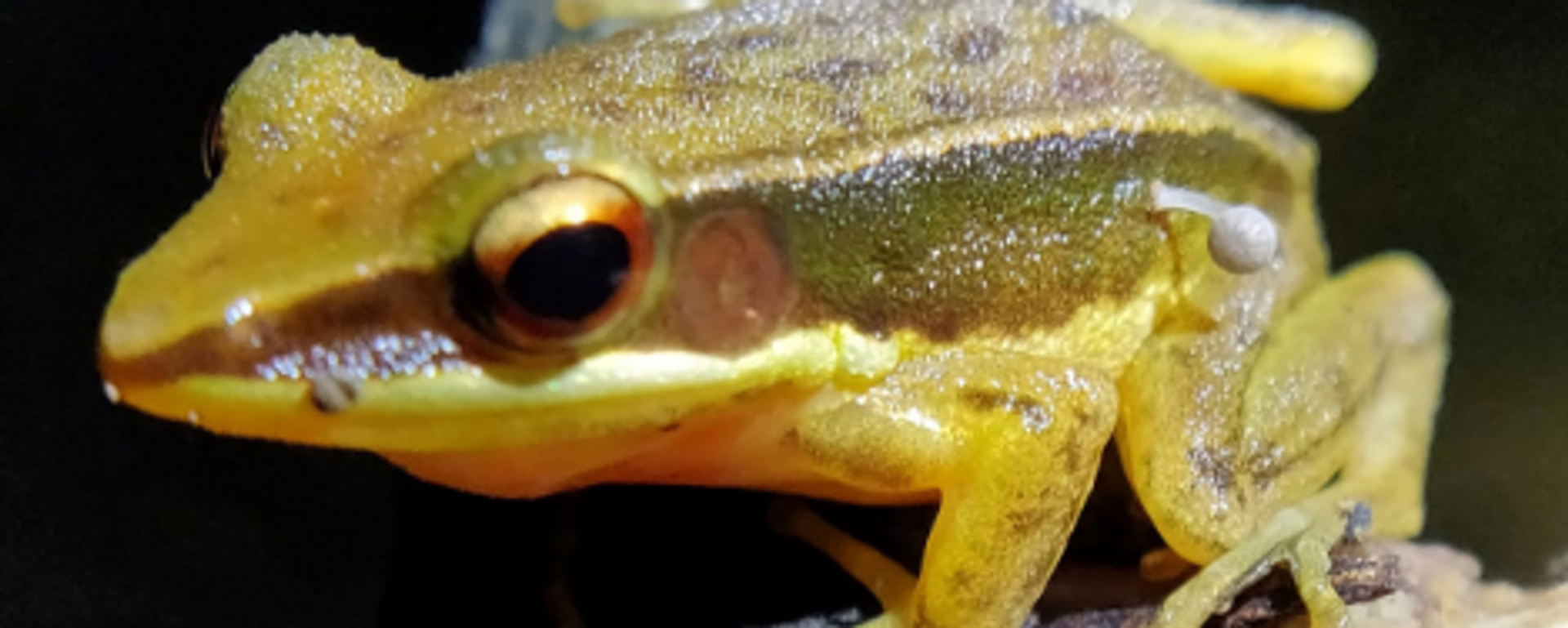https://sputniknews.in/20240222/indian-climbers-make-surprising-rare-bacteria-discovery-in-ethiopia-6635125.html
Indian Climbers Make Surprising Rare Bacteria Discovery in Ethiopia
Indian Climbers Make Surprising Rare Bacteria Discovery in Ethiopia
Sputnik India
Mountaineers from India's West Bengal state, recently returned from a six-day expedition in Ethiopia with samples of special bacteria that can survive in extreme temperatures.
2024-02-22T17:23+0530
2024-02-22T17:23+0530
2024-02-22T17:23+0530
india
sputnik exclusives
science & tech
ethiopia
west bengal
science diplomacy
ministry of earth sciences
https://cdn1.img.sputniknews.in/img/07e8/02/16/6636635_0:0:1600:900_1920x0_80_0_0_d7104e1f464f78ff4f16d7db95dc0774.jpg
Indian researchers have expressed great excitement following the discovery of rare bacteria in Ethiopia.They have said that they are now planning to subject it to a thorough analysis of its genome sequence to identify the bacteria's characteristics and survival mechanisms.The bacteria was found by three climbers - Swapan Ghosh, Manas Saha, and Satyarup Siddhanta - who collaborated with Burdwan University in West Bengal and worked closely with professors from botany, microbiology, geography, and chemistry departments for training for the expedition.On February 3, the climbers, along with volcanologist Enku Mulugeta, embarked on their scientific expedition.Battling harsh weather, challenging terrain, and the threat of molten lava, these climbers gathered water, mud, and plant samples from active volcanoes, mud volcanoes, hot geysers, waterbodies, hot springs, and salt lakes.To bring these samples to India, mountaineers had to face many clearance issues.“We had to leave a lot of samples at the airport because we were allowed to take only a few. We sought permission from various departments and ensured them that the samples are for scientific purposes and not for commercial use,” he added.Researchers at Burdwan University are studying a special chemical process in these bacteria and its potential uses. The team also intends to conduct a comparison of these bacteria with those present in the Antarctic region, paying particular attention to their unique features, such as the existence of extracellular polysaccharide coatings.
https://sputniknews.in/20240214/frog-found-with-mushroom-growing-on-its-body-leaves-indian-scientists-baffled-6544313.html
india
ethiopia
west bengal
Sputnik India
feedback.hindi@sputniknews.com
+74956456601
MIA „Rossiya Segodnya“
2024
Sangeeta Yadav
https://cdn1.img.sputniknews.in/img/07e6/0c/0f/110602_0:0:641:640_100x100_80_0_0_c298016a79eb02ef8caa9d1f688c12a5.jpg
Sangeeta Yadav
https://cdn1.img.sputniknews.in/img/07e6/0c/0f/110602_0:0:641:640_100x100_80_0_0_c298016a79eb02ef8caa9d1f688c12a5.jpg
News
en_IN
Sputnik India
feedback.hindi@sputniknews.com
+74956456601
MIA „Rossiya Segodnya“
Sputnik India
feedback.hindi@sputniknews.com
+74956456601
MIA „Rossiya Segodnya“
Sangeeta Yadav
https://cdn1.img.sputniknews.in/img/07e6/0c/0f/110602_0:0:641:640_100x100_80_0_0_c298016a79eb02ef8caa9d1f688c12a5.jpg
mountaineer, west bengal, science, six-day expedition, ethiopia, bacteria, survive in extreme temperatures, indian researchers, analysis, genome sequence, survival mechanisms, swapan ghosh, manas saha, satyarup siddhanta, volcanologist enku mulugeta, botany, microbiology, geography, chemistry, burdwan university, challenging terrains, molten lava, hot geysers, thermophilic bacteria, erta ale volcano, geysers at allolabed, saline lakes at lake asale and dallol, rajib bandyopadhyay, botany department, chemical process, commercial usages, antarctic region, extracellular polysaccharide coatings
mountaineer, west bengal, science, six-day expedition, ethiopia, bacteria, survive in extreme temperatures, indian researchers, analysis, genome sequence, survival mechanisms, swapan ghosh, manas saha, satyarup siddhanta, volcanologist enku mulugeta, botany, microbiology, geography, chemistry, burdwan university, challenging terrains, molten lava, hot geysers, thermophilic bacteria, erta ale volcano, geysers at allolabed, saline lakes at lake asale and dallol, rajib bandyopadhyay, botany department, chemical process, commercial usages, antarctic region, extracellular polysaccharide coatings
Indian Climbers Make Surprising Rare Bacteria Discovery in Ethiopia
Mountaineers from India's West Bengal state recently returned from a six-day expedition in Ethiopia with samples of a rare bacteria that can reportedly survive in extreme temperatures.
Indian researchers have expressed great excitement following the discovery of
rare bacteria in Ethiopia. They have said that they are now planning to subject it to a thorough analysis of its genome sequence to identify the bacteria's characteristics and survival mechanisms.
The bacteria was found by three climbers - Swapan Ghosh, Manas Saha, and Satyarup Siddhanta - who collaborated with Burdwan University in West Bengal and worked closely with professors from botany, microbiology, geography, and chemistry departments for training for the expedition.
"We got training in how to collect samples and store them, the usage of chemicals, and equipment, and following safety measures. We then sought permission from the concerned department for the collection of the samples and also extended the idea of promoting geo-tourism in Ethiopia and collaboration for bilateral researchers and expeditions," mountaineer Satyarup Siddhanta told Sputnik India.
On February 3, the climbers, along with volcanologist Enku Mulugeta, embarked on their
scientific expedition.Battling harsh weather, challenging terrain, and the threat of molten lava, these climbers gathered water, mud, and plant samples from active volcanoes, mud volcanoes, hot geysers, waterbodies, hot springs, and salt lakes.
“We collected samples from different locations, like the Erta Ale volcano, the geysers at Allolabed, and the saline lakes at Lake Asale and Dallol. Some of the areas were quite interesting yet dangerous. But it was worth taking up the risk. We worked as a bridge for scientists to reach out to these distant places and collect samples for their research and discoveries,” Siddhanta said.
To bring these samples to India, mountaineers had to face many clearance issues.
“We had to leave a lot of samples at the airport because we were allowed to take only a few. We sought permission from various departments and ensured them that the samples are for scientific purposes and not for commercial use,” he added.
Researchers at Burdwan University are studying a special chemical process in these bacteria and its potential uses.
The team also intends to conduct a comparison of these bacteria with those present in the
Antarctic region, paying particular attention to their unique features, such as the existence of extracellular polysaccharide coatings.




